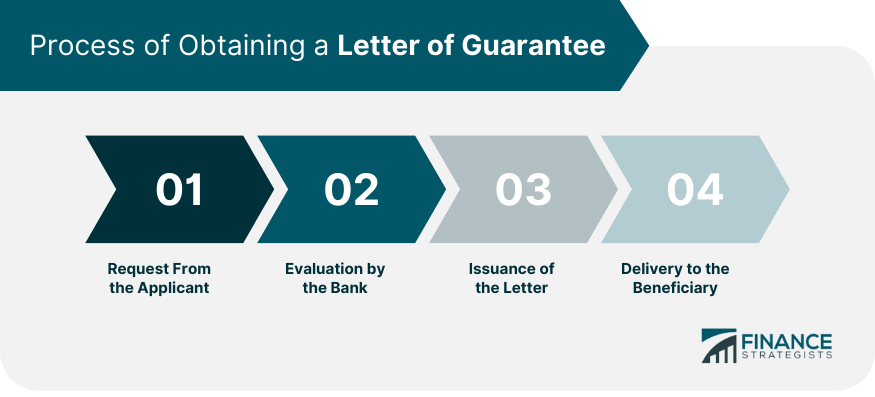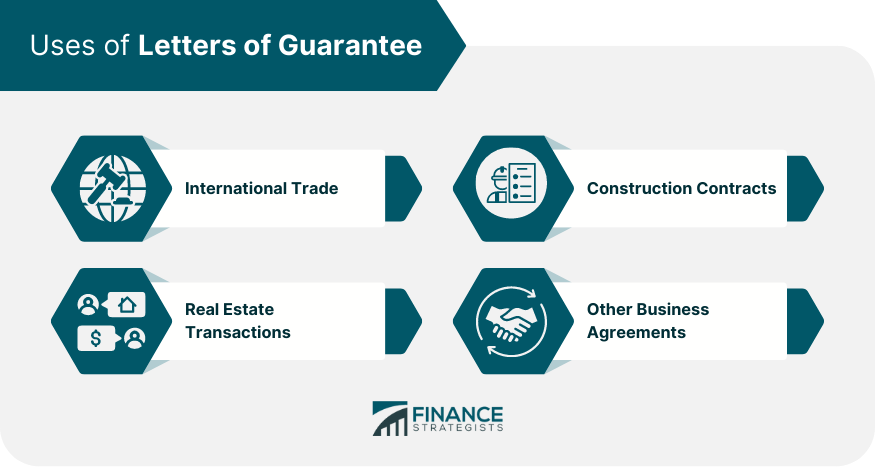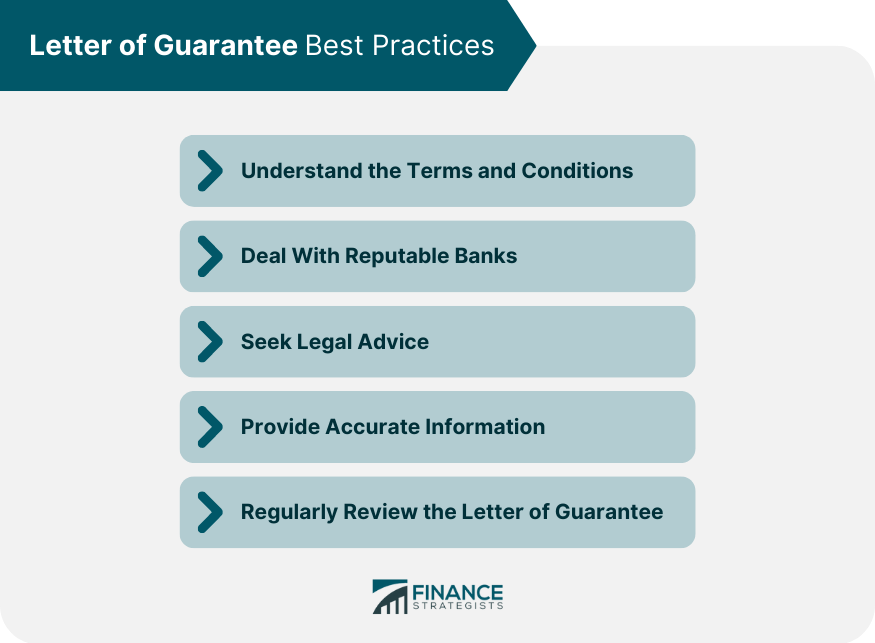A Letter of Guarantee (LoG) is a type of contract issued by a bank on behalf of its client, providing assurance that the client will fulfill their obligations under a specific transaction. The bank undertakes to cover the loss up to a certain amount if the client fails to meet their commitments. LoGs play a crucial role in financial transactions, particularly those involving substantial sums and inherent risks. They offer a sense of security and trust, helping to facilitate business deals among parties who might otherwise be cautious about trading due to potential default risks. Letters of Guarantee date back to ancient times when traders needed a means to ensure their trading partners would fulfill their contractual obligations. Initially, these letters were written agreements endorsed by renowned merchants or local authorities. With the evolution of the banking system, the responsibility for issuing LoGs shifted to banks, given their financial strength and credibility. Over time, LoGs have become standardized and subject to national and international laws and banking practices, making them a widely accepted tool for securing business transactions. A Tender Guarantee, also known as a Bid Bond, is used in tender processes where companies bid for a project. It provides assurance that the bidding company, if awarded the project, will proceed with it as per the terms specified. A Performance Guarantee ensures that a company will complete a project according to the contract's terms and conditions. If the company fails to meet these requirements, the bank will compensate the project owner. A Payment Guarantee assures the seller that they will receive payment for goods or services provided, even if the buyer defaults. An Advanced Payment Guarantee protects a buyer who has made an advance payment to the seller. If the seller fails to deliver as promised, the bank will refund the advance payment. The Applicant is the party requesting the Letter of Guarantee. This party is typically involved in a transaction that requires them to provide assurance of their ability to meet specific obligations. The Beneficiary is the party to whom the Letter of Guarantee is addressed. This party requires assurance that the applicant can fulfill their obligations. The Issuing Bank is the financial institution that writes the Letter of Guarantee. It promises to cover the Beneficiary's loss if the Applicant fails to meet their obligations. The process begins with the Applicant requesting a Letter of Guarantee from their bank. This request includes the details of the transaction, including the parties involved and the specific obligations. Upon receiving the request, the bank evaluates the Applicant's creditworthiness and the transaction's risk profile. If approved, the bank may require collateral or a margin deposit from the Applicant. Once the bank is satisfied with the evaluation, it issues the Letter of Guarantee. The letter outlines the transaction's specifics, the obligations it covers, and the maximum amount the bank will pay in case of default. The final step is the delivery of the Letter of Guarantee to the Beneficiary. The Beneficiary can then proceed with the transaction, assured of the Applicant's performance. In international trade, Letters of Guarantee are often used to secure transactions between buyers and sellers from different countries. They help to mitigate the risks associated with different legal jurisdictions and unfamiliar trading partners. In real estate transactions, developers often require a Performance Guarantee to ensure the construction company will complete the project as agreed. Similarly, in construction contracts, the project owner may require a Payment Guarantee to ensure they receive payment for their work if the hiring party defaults. LoGs are also used in various other business agreements where one party needs assurance that the other party will meet its obligations. For the Applicant, the Letter of Guarantee helps secure a deal by providing the Beneficiary with the assurance of their performance. It can help the Applicant compete more effectively for business opportunities. For the Beneficiary, the Letter of Guarantee reduces the risk of the Applicant defaulting on their obligations. This assurance can help the Beneficiary feel more secure in proceeding with the transaction. For the Applicant, potential risks include financial liability if they fail to meet their obligations. They may also need to provide collateral or a cash deposit to the bank. For the Beneficiary, the primary risk is that the bank issuing the Letter of Guarantee may fail. However, this risk is generally minimal given the financial strength and regulatory oversight of most banks. Both parties can mitigate these risks by thoroughly understanding the terms of the Letter of Guarantee, seeking legal advice, and dealing with reputable banks. Before entering into a Letter of Guarantee, both parties should understand its terms and conditions. This understanding includes knowing the specific obligations covered, the Letter's expiration date, and any conditions for claiming under the guarantee. Dealing with a reputable bank can help reduce the risk of a Letter of Guarantee. The parties should ensure that the bank is financially stable and has a history of honoring its commitments. Given the legal implications of a Letter of Guarantee, it's advisable to seek legal advice before entering into one. A lawyer can help understand the terms and conditions and advise on any potential legal risks. The Applicant should provide accurate information to the bank when applying for a Letter of Guarantee. Any inaccuracies could lead to the bank refusing to honor the Letter. Both parties should regularly review the Letter of Guarantee, particularly for long-term transactions. This review helps ensure that the Letter remains appropriate for the transaction and allows for any necessary adjustments. A Letter of Guarantee is a valuable tool in financial transactions, providing assurance and mitigating risks for both the Applicant and the Beneficiary. The different types of guarantees, such as Tender Guarantee, Performance Guarantee, Payment Guarantee, and Advanced Payment Guarantee, cater to specific transactional needs and provide financial security. Letters of Guarantee play a significant role in international trade, real estate transactions, construction contracts, and various other business agreements. They help foster trust and facilitate deals by addressing default risks. While there are risks involved, such as financial liability for the Applicant and the potential failure of the issuing bank, these risks can be mitigated by understanding of the terms and conditions, dealing with reputable banks, seeking legal advice, and complying with regulatory requirements. To ensure the effectiveness of Letters of Guarantee, best practices include understanding the terms and conditions, dealing with reputable banks, seeking legal advice, providing accurate information, and regularly reviewing the Letter to adapt to changing circumstances. Given the complexity and potential risks associated with Letters of Guarantee, it's advisable to seek professional guidance. Consulting with financial advisors and legal experts can help parties navigate this intricate financial tool effectively and confidently.What Is a Letter of Guarantee?
History and Evolution of the Letter of Guarantee
Types of Letters of Guarantee
Tender Guarantee
Performance Guarantee
Payment Guarantee
Advanced Payment Guarantee
Parties Involved in a Letter of Guarantee
Applicant
Beneficiary
Issuing Bank
Process of Obtaining a Letter of Guarantee
Request From the Applicant
Evaluation by the Bank
Issuance of the Letter
Delivery to the Beneficiary

Uses of Letters of Guarantee
International Trade
Real Estate Transactions
Construction Contracts
Other Business Agreements

Advantages of Using a Letter of Guarantee
Benefits for the Applicant
Benefits for the Beneficiary
Potential Risks and Challenges With Letters of Guarantee
Risks for the Applicant
Risks for the Beneficiary
How to Mitigate These Risks
Letter of Guarantee Best Practices
Understand the Terms and Conditions
Deal With Reputable Banks
Seek Legal Advice
Provide Accurate Information
Regularly Review the Letter of Guarantee

Final Thoughts
Letter of Guarantee FAQs
A Letter of Guarantee is a contract from a bank guaranteeing that a buyer's payment to a seller will be received on time and for the correct amount. If the buyer fails to fulfill this, the bank will cover the full or remaining amount.
The main parties involved are the Applicant (the party requesting the guarantee), the Beneficiary (the party receiving the guarantee), and the Issuing Bank.
Letters of Guarantee are used in various scenarios, including international trade, real estate transactions, construction contracts, and other business agreements.
Risks include financial liability for the Applicant if they fail to meet their obligations, and for the Beneficiary, the risk lies in the issuing bank's potential failure.
Best practices include understanding the terms and conditions, dealing with reputable banks, seeking legal advice, providing accurate information, and regularly reviewing the Letter of Guarantee.
True Tamplin is a published author, public speaker, CEO of UpDigital, and founder of Finance Strategists.
True is a Certified Educator in Personal Finance (CEPF®), author of The Handy Financial Ratios Guide, a member of the Society for Advancing Business Editing and Writing, contributes to his financial education site, Finance Strategists, and has spoken to various financial communities such as the CFA Institute, as well as university students like his Alma mater, Biola University, where he received a bachelor of science in business and data analytics.
To learn more about True, visit his personal website or view his author profiles on Amazon, Nasdaq and Forbes.















